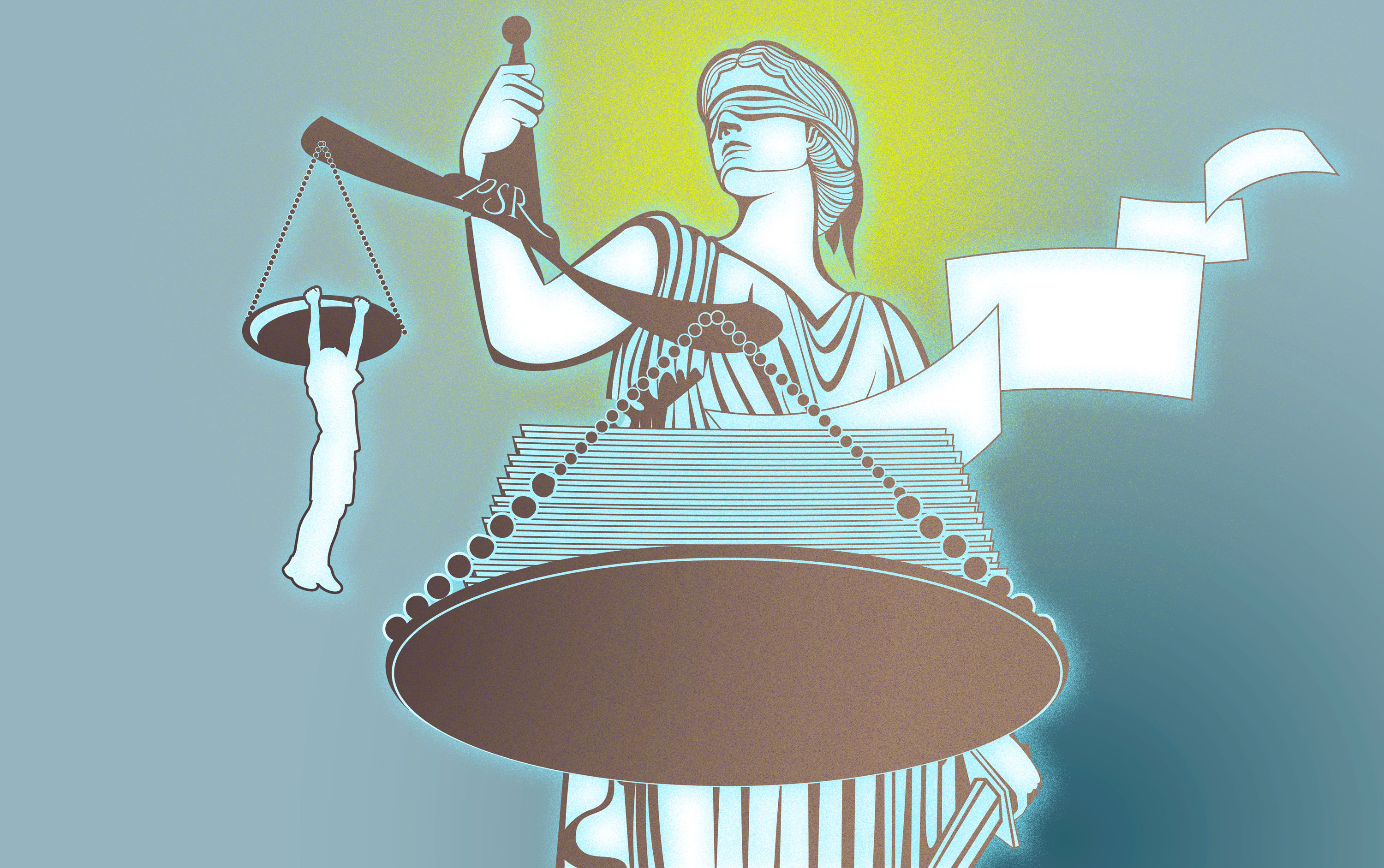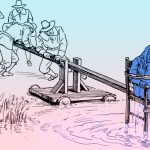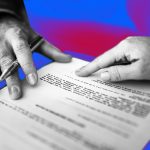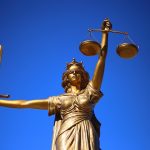Opaque rules about after-hours urgent care are set to cost three doctors a fortune in Medicare repayments.
A trio of Queensland GPs who have fallen foul of the Professional Services Review while working for an after-hours medical deputising service say their employer needs to take some responsibility for the allegations of inappropriate practice against them.
Dr Alireza Firouzfar, Dr Hamid Norouzi and Dr Tony Tanious all drew attention from the watchdog for the number of urgent after-hours Medicare Benefits Schedule items billed between 2016 and 2017.
Dr Firouzfar is at the second step of the three-stage process, awaiting peer review by a PSR committee to consider if inappropriate practice has occurred.
Dr Tanious is at the final stage of the PSR, awaiting the ruling on his case as decided by the Determining Authority.
Only Dr Norouzi has completed the PSR process, the authority determining he will be sanctioned from billing any urgent after-hours item numbers for a number of months and forced to repay Medicare about $450,000.
All three doctors, despite being investigated separately by the PSR, say they will be required to pay the same amount to Medicare – about $1.5 million between them.
At the time the billings occurred, all doctors were working for the Queensland-based company House Call Doctor, which provides bulk-billed after-hours care.
But it will be the doctors who are solely responsible for this repayment to Medicare.
The doctors claim House Call Doctor had directed them to bill the consults as urgent, reassuring them such a practice was Medicare-appropriate. They also say the company pocketed in fees up to half the money rendered from the services, making the PSR’s ruling that the doctors were solely responsible for the repayment a bitter pill to swallow.
The issue at the heart of the matter relates to the MBS numbers billed after-hours, in particular the urgent attendance after-hours item 597, which was discontinued in 2018. This item number has since been replaced by three separate item numbers (585, 591 and 588.)
At the time (2016), the description on the MBS for item 597 said it was a “Professional attendance by a general practitioner … in an after-hours period if the attendance is requested by the patient or a responsible person in, or not more than two hours before the start of, the same unbroken urgent after-hours period … the patient’s condition requires urgent medical treatment.’
In the years leading up to 2016, what constituted a “condition requiring urgent medical treatment” had not been well-defined. But as Medicare billings for this item number started to grow, this ambiguity was being addressed.
The period that the men were working for House Call Doctor in 2016 coincided with Medicare starting to tighten the rules on after-hours services.
The Department of Health sent a series of nudge letters to doctors in July 2016, alerting them to the issue and asking them to acknowledge services that might have been incorrectly claimed as urgent in the 18 months to December 2015.
Doctors were warned that formal audits could follow to identify any urgent MBS attendances that couldn’t be properly justified.
At this time, medical defence organisations, such as AVANT, began publishing guidance to doctors working for medical deputising services about what constituted “appropriate” billing practice.
All these moves were not lost on the doctors working in these after-hours services. Concerns were raised.
However, Dr Norouzi and his colleagues were reassured when House Call Doctor sent an internal email in 2016 that explained how the advice from AVANT would affect the services provided by the company.
In this email House Call Doctor says: “If patients are identified with a condition that you determine necessary to start treatment, then this certainly falls under 597 item code.”
The communication goes on to say that even though an appendicitis or tonsillitis are examples of conditions that could wait till the next day for treatment, the proper practice is to treat.
“This is the correct thing to do as it will prevent further complications and gives the patient the best and timely treatment,” House Call Doctor says.
“Could this patient go without treatment until the morning and survive? Probably yes. But the patient will still meet the definition for 597 item code.”
The three doctors claim that the corporate controlled their billing by using a chaperone system that meant doctors were not the ones determining whether an after-hours visit was “urgent”.
According to the doctors, they would travel by car to their patients’ homes, with a driver who doubled as a chaperone for all appointments.
(Asked how it makes its money, House Call Doctor tells The Medical Republic that it does not take commissions but charges fees for “services provided” to practitioners wanting to work after hours, including “access to chaperones”.)
The chaperone would accompany the doctor into the patient’s home at the start of every visit to check patient details against the individual’s Medicare number.
The doctors say the chaperone would enter this information into a program on their personal phone or iPad device and would often use urgent item numbers as the default for most appointments.
Dr Norouzi says after each consult, he would let the chaperone know if he thought the visit was urgent or not.
But because he didn’t have access to the chaperone’s personal electronic device, he had to trust the chaperone would change the item number appropriately.
Dr Norouzi says while working under House Call Doctor he was offered multiple educational sessions about how to determine urgent attendances from those that were non-urgent.
During his PSR case, Dr Norouzi says he contacted House Call Doctor for a copy of recordings taken during those educational sessions, but the company refused to produce the files to help his defence.
Throughout Dr Norouzi’s recent PSR case, House Call Doctor denied all responsibility for his use of urgent after-hours item numbers while working under its brand.
House Call Doctor tells The Medical Republic that as with general practice, it is the legal responsibility of the attending practitioner to decide which MBS item is used before a claim is made.
“From time to time, House Call Doctor does provide practitioners with support in the form of access to doctors experienced in after-hours care,” it says.
“This is part of House Call Doctor’s program in supporting practitioners, but it is the responsibility of practitioners to determine the MBS item.”
For the doctors now hit with a massive IOU from the PSR, this statement completely ignores the role the company played in the practice of inappropriate billing.
In a move that would seem to vindicate doctors’ claims that it is the business that flouts the rules rather than the practitioners, the PSR last year initiated its first company-wide investigation of the National Home Doctor Service (another after-hours GP home service company) to determine whether the corporate “knowingly, recklessly or negligently” allowed some of its doctors to engage in inappropriate practice, focusing on the use of urgent after-hours items.
But the National Home Doctor Service, which has consistently denied any responsibility, launched legal action in March, saying it had been denied procedural fairness by the PSR.
It claimed the doctors were contractors rather than employees and therefore solely responsible for their own billing practices.
The Federal Court agreed, finding that the PSR had indeed “shifted the goalposts”.
But the corporate lost its subsequent challenge in July, which argued for the PSR investigation into the company to be discontinued.
The Federal Court dismissed the argument, ruling the PSR could continue its investigation.
House Call Doctor echoes the NHDS’ sentiment. It tells The Medical Republic that its doctors are not employees or staff, they are contractors.
Dr Tanious says as long as corporates continue to take no responsibility for the billing practices of the doctors they employ, he fears other doctors could be used like pawns on a chessboard for their provider numbers.
He tells TMR: “I came to Australia from the United States to help in areas that were under served and chose to live and work in places of Australia that many would not.
“After being exploited by House Call Doctor and bullied by the government I will most likely go back to the United States once the borders open. Although the United States is in a state of turmoil, the doctors there – unlike Australia – are respected and treated with regard and decency.”
What constitutes urgent?
The other significant issue raised by these PSR investigations is the ambiguity of the Medicare item number descriptors. How do you determine what is urgent?
Dr Norouzi provided evidence to the PSR that at the time of investigation he was operating full-time in the Queensland Wide Bay-Burnett region, home to a quarter of a million people, spread across an area of about 50,000 square kilometres.
He says doctors who understand the unique GP shortage and lack of after-hours care in Queensland’s Wide Bay region would understand the higher frequency of urgent care provided by medical deputising services.
The federal member for Hinkler, Keith Pitt, says his office has made a number of representations regarding the shortage of doctors in the region.
“In this electorate, which has a very high demographic of senior constituents, it is not uncommon for patients to wait several weeks for a standard appointment and it is almost impossible to get a ‘same day’ appointment,” Mr Pitt says.
Services provided by House Call Doctor in his electorate have had positive results in relieving waiting times for local hospitals, he adds.
Consequently, Dr Norouzi found himself seeing a lot of patients whom he thought could be appropriately billed under the MBS professional attendance item numbers for urgent after-hours attendance.
But this view was not shared by Professor Julie Quinlivan, Director of the PSR, who upon meeting with Dr Norouzi discussed specific examples of when a GP could “appropriately” bill under the urgent after-hours attendance items.
After the meeting with Professor Quinlivan, Dr Norouzi received a copy of the Director’s findings in a letter sighted by The Medical Republic.
“During my meeting with you I discussed some examples of consultations that may be considered urgent, these include administration of a nebuliser for an asthmatic patient followed by a series of observations over time to monitor oxygen saturation and peak flow to assess the patient’s response, suturing, administration of intravenous fluids or administration of aspirin and arrangement for hospital transfer for a suspected stroke,” she says.
Dr Norouzi says he asked the PSR for further clarification on whether it would be considered safe for an after-hours doctor to perform duties that are typically considered emergency care, rather than “urgent” in the primary care sense.
But he says he received no further explanation and claims the PSR Director told him that rather than bill “urgent” after-hours attendance items, that these patients should be directed to their local emergency department.
The PSR did not respond to emailed questions or a request for an interview with Professor Quinlivan.
So where does one go to resolve such ambiguity? The RACGP, like other medical colleges, claims it is not a legal authority and therefore can’t interpret the MBS rules.
But Dr Michael Wright, speaking on behalf of the RACGP, says he acknowledges that the MBS can be overly prescriptive and focused on adherence to an administrative process, rather than the quality of care provided to Australians.
“The RACGP does receive feedback from GPs about inconsistencies within the MBS and the varying advice given by askMBS as well as the varying results of PSR cases,” he says.
“The vast majority of GPs are trying to do the right thing.”
Dr Sara Bird, medico-legal and executive manager of professional services at MDA National, says often a defence will come down to the interpretation of what is considered urgent.
“Of course, from a patient’s point of view, they may see their condition as urgent and when you turn up to their house under that impression it may end up being a situation where you don’t have to deliver urgent treatment,” she tells The Medical Republic.
“Ultimately the law sees that you are responsible for your own provider number, which means you have to be very mindful about what the item numbers are that you are billing and the criteria you need to meet and document in your notes in order to bill them.”
What now?
All three doctors see the label of “inappropriate practice”, as determined by the PSR as a personal embarrassment and a professional black mark against their names.
And if the PSR determines they have engaged in inappropriate practice, they say they will be unfairly compared with other doctors who have knowingly and willingly defrauded Medicare, sometimes without even seeing patients.
None of these three doctors are still working in after-hours care.
Dr Norouzi, whose investigation by the PSR recently concluded, has commenced independent legal action in the Brisbane Federal Court.
His case, which was to be heard this month, will challenge the PSR’s ruling that he engaged in inappropriate practice.
Both he and Dr Firouzfar now work in daytime practice in Childers, saying they feel obliged to continue to provide GP care in an area that is so underserviced medically.
But for Dr Tanious, coming under the attention of the PSR has scared him from continuing to work with Medicare as a GP.
“I will feel forever reluctant to bill anything because of the concern of thinking something isn’t done right,” he says.
Dr Tanious says he would feel more comfortable working if the item number descriptors were clearer, and the boundaries of what constitutes appropriate practice, according to the PSR was better known.
“It would also be so different if we knew that our billing was wrong immediately, but when the PSR investigates you it might be two years later,” he says.
“If you bill something you may not find out for years that there was a problem. Why would you want to live with that anxiety and fear?” says Dr Tanious.
“I just don’t think it’s worth it.”






